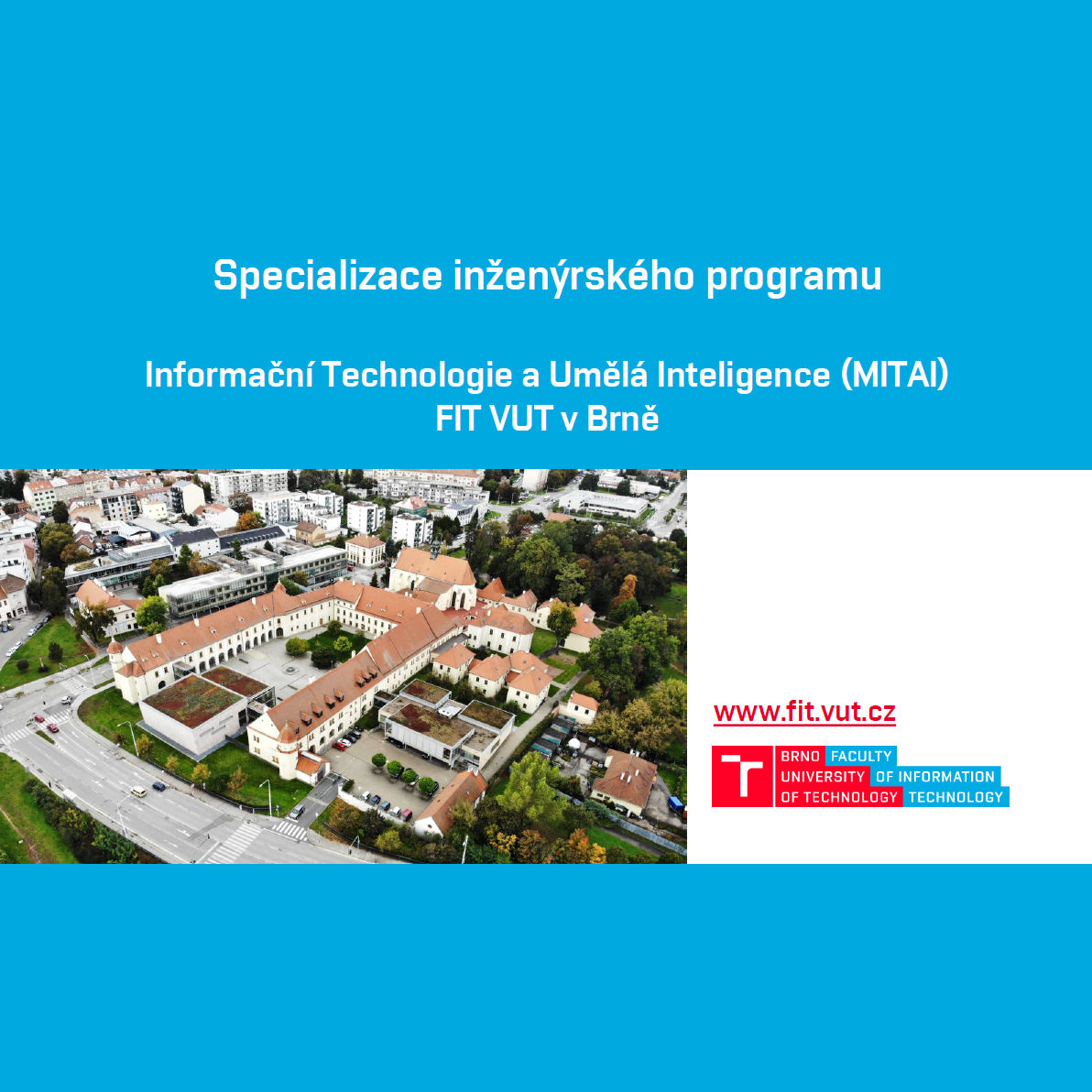High Performance Computing
Acad. year 2022/2023Full-Time 2 Years Title Awarded Ing.
Within the specialization, you will learn how to employ supercomputer technologies and high performance computing techniques in the field of physical modeling, biology, chemistry, artificial intelligence or economics. You will learn how to model complex systems using mathematical apparatus, understand properties of numerical methods and become experts in the area of design, implementation, optimization and validation of programs oriented on performance and power consumption. You will gain practical experience with the development on top supercomptuer facilities based on the combination of classic processors, graphics processing units and FPGA accelerators.
1st Year
The common basis of the programme
The common core of the program consists of courses that will give you the knowledge important for all IT engineers:
- Computation Systems Architectures will teach you how to think about how your code will run on modern computing platforms, how to think about programming in a way that makes the most efficient use of resources, i.e., that your application makes the best use of the power of modern platforms, makes efficient use of system memory resources, and is also efficient in terms of energy consumed.
- Functional and Logic Programming will teach you that although classical imperative programming is a very widely used paradigm and is very close to machine-level implementation, there are other approaches that will give you a new perspective on some key problems and help you get novel and often more efficient solutions to them.
- Modern Trends in Informatics (in English) you need to know to see where the field is going and what to expect in practice in a few years.
- Parallel and Distributed Algorithms is a course that will show you the patterns, limits, and pitfalls of parallel and distributed algorithmic solutions and the associated synchronization mechanisms, without which you will hardly succeed in solving many of the more complex problems.
- Statistics and probability is the right hand of every engineer to process numerical results of experiments or data obtained while running your application, analyze them and learn from them to make further decisions is almost his daily bread.
- Theoretical Computer Science shows the limits of computer science capabilities through formal languages and mathematical models of computation. This is the only way to understand whether your problem is even solvable and, if so, with what resources and means to prove it.
- Data Storage and Preparation, especially big data, and extracting knowledge from it is a valuable art to any computer scientist. It is a key aspect that strongly influences the effectiveness of many solutions and applications.
- Artificial Intelligence and Machine Learning is a course where you will learn how to teach computers to understand our world and make them solve problems that are easy for humans but difficult for an algorithmic machine to handle.
They will pass on all their knowledge and hold you in difficult moments
Doc. Ing.
Jaroš Jiří
Ph.D.
Teaches Computation Systems Architectures providing detailed information on the modern processor architectures and their efficient programming. You can also meet him in Practical Parallel Programming and Parallel computing on GPUs. These courses introduce the area of high performance computing, artificial intelligence and data mining on top supercomputers.
Doc. Dr. Ing.
Fučík Otto
He teaches the Hardware / Software Codesign course, which focuses on various aspects of embedded system design at the system level. He uses his experience from teaching at universities abroad and practical knowledge of designing complex computer systems.
Doc. Dr. Ing.
Hanáček Petr
Ing.
Šátek Václav
Ph.D.
He teaches the High Performance Computations course, that shows students how to effectively solve technical initial value problems and differential equations. He closely cooperates with IT4Innovations VŠB-TU Ostrava on research theme - contact problems in computing fluid dynamics. He also guarantees the course Electronics for Information Technology.
What are we talking about?
-
A team from the Faculty of Information Technology at the BUT, led by Martin Karafiát, is involved in a unique dialect mapping project. In cooperation with the Academy of Sciences of the Czech Republic and Palacký University in Olomouc, they are creating a website where you can select a region of the Czech Republic and listen to the dialects characteristic of a given place. …
-
Paint like Pollock. Mobile app by FIT BUT students awakens the inner artist in children and adults
Brushes, paints, palette, canvas - all these are usually considered basic necessities for artistic expression. Designed for all art lovers, regardless of age, the Pollock Artify app offers the opportunity to unleash your creativity with a tool that is always at hand - your mobile phone. …
Come to FIT!
Other Master
Specializations
-
Application Development
-
Bioinformatics and Biocomputing
-
Computer Graphics and Interaction
-
Computer Networks
-
Computer Vision
-
Cyberphysical Systems
-
Cybersecurity
-
Embedded Systems
-
High Performance Computing
-
Information Systems and Databases
-
Intelligent Devices
-
Intelligent Systems
-
Machine Learning
-
Mathematical Methods
-
Software Engineering
-
Software Verification and Testing
-
Sound, Speech and Natural Language Processing
